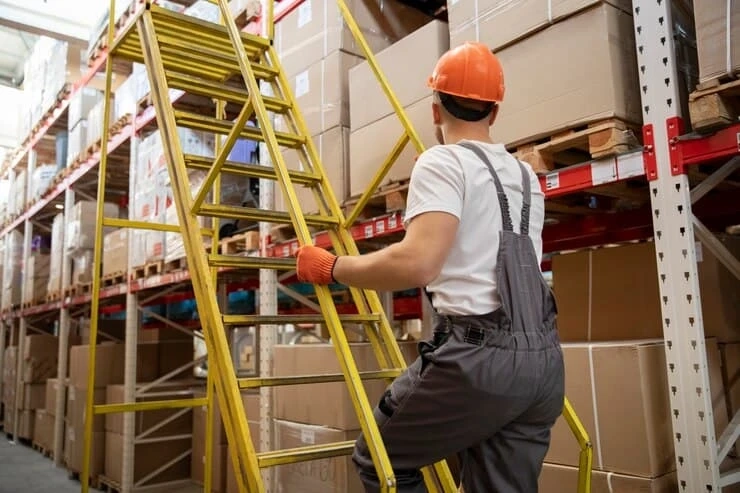Racking systems are essential components in warehouses and storage facilities, providing the necessary support for goods and materials. However, like any other equipment, these systems require regular maintenance and occasional repairs. Identifying when racking repairs is crucial for maintaining safety, efficiency, and productivity in your operations. This article serves as a comprehensive guide to help you recognize the signs that your racking may need attention.
Understanding Racking Systems
Racking systems come in various types, including selective racks, drive-in racks, and pallet flow racks, among others. Each system has its unique structure and purpose, but they all share the common goal of optimizing storage space and facilitating access to inventory. Regular inspection and maintenance are vital to ensure these systems function correctly and safely.
The Importance of Regular Inspections
Regular inspections are the first step in identifying potential issues within your racking systems. Inspections should be conducted at least annually, but frequent checks may be necessary depending on the usage and type of goods stored. During these inspections, look for the following signs of wear and tear:
1. Visual Damage
One of the most apparent signs that your racking needs repairs is visible damage. This can include bent beams, cracked posts, or broken welds. Such damage can compromise the structural integrity of the racking system, making it essential to address any issues promptly.
2. Misalignment
Over time, racking systems may become misaligned due to heavy loads or improper use. Misalignment can lead to uneven weight distribution, increasing the risk of collapse. If you notice that shelves or beams are not level, it may be time to investigate further.
3. Load Capacity Issues
Every racking system has a specified load capacity. Exceeding this capacity can lead to structural failures. If you frequently find that your racks are overloaded or if the load capacity markings are not being observed, it’s crucial to reevaluate your storage practices.
4. Rust and Corrosion
Metal racking systems are susceptible to rust and corrosion, especially in environments with high humidity or exposure to chemicals. Regularly inspect for signs of rust, which can weaken the metal and lead to structural failure.
5. Loose Connections
Nuts, bolts, and other connections can become loose over time, especially in systems that experience heavy use. Regularly check these connections to ensure they are secure. Loose connections can lead to instability and potential accidents.
6. Floor Damage
The condition of the floor beneath your racking system is also critical. Cracks, uneven surfaces, or other forms of damage can affect the stability of the racking. Ensure that the floor is in good condition and capable of supporting the weight of the racking and its loads.
Signs of Overloading
Overloading is a common issue that can lead to significant safety hazards. Here are a few signs that your racking may be overloaded:
1. Bowing or Sagging
If beams or shelves are bowing or sagging under the weight of the stored goods, it’s a clear indication that they are overloaded. This can lead to structural failure and potential collapse.
2. Frequent Shifting of Goods
If items frequently shift or fall from the shelves, it may indicate that the racks are not able to support the weight or are not adequately designed for the type of goods stored.
3. Increased Damage to Stored Goods
If you notice an increase in damaged goods, it could be a sign that the racking system is not providing adequate support. This may result from overloading or misalignment.
Preventive Maintenance
Preventive maintenance is key to extending the life of your racking systems and reducing the need for repairs. Here are some strategies for effective preventive maintenance:
1. Regular Inspections
Schedule regular inspections of your racking systems to catch potential issues early. Document any findings and address them promptly to avoid more significant problems down the line.
2. Staff Training
Ensure that all staff members are trained in proper loading techniques and the weight capacities of the racking systems. This training can help prevent overloading and misuse.
3. Environmental Controls
Maintain a suitable environment for your racking systems. Control humidity and exposure to chemicals to minimize the risk of corrosion and rust.
4. Proper Loading Techniques
Follow recommended loading techniques, such as distributing weight evenly and not exceeding the load capacity. This can help prolong the life of the racking systems.
When to Call for Professional Help
While regular inspections and maintenance can prevent many issues, sometimes professional help is necessary. Here are scenarios when you should consider calling in experts:
1. Extensive Damage
If there is extensive damage to the racking system, such as multiple bent beams or significant rust, it’s best to consult a professional for repairs.
2. Structural Concerns
If you have concerns about the structural integrity of your racking system, do not hesitate to seek professional advice. They can conduct a thorough assessment and recommend necessary repairs or replacements.
3. Compliance Issues
If your racking systems are not compliant with safety regulations, it is crucial to address this immediately. Professionals can provide guidance on necessary upgrades or modifications.
Conclusion
Maintaining the integrity of your racking systems is vital for ensuring safety and efficiency in your storage operations. Regular inspections, preventive maintenance, and prompt repairs are essential practices that can save time and money in the long run. By being vigilant and proactive, you can significantly reduce the risks associated with racking failures.
If you're facing challenges with your racking systems or need expert assistance with racking repairs, consider reaching out to Dalvie Systems. Our team of professionals is ready to help you keep your operations safe and efficient. Don't wait until it's too late contact us today for a consultation!


